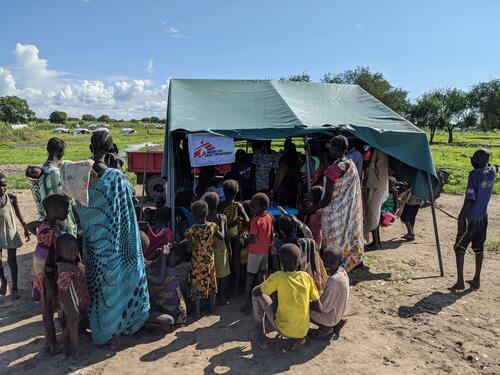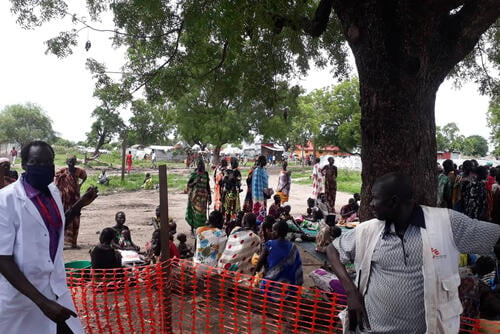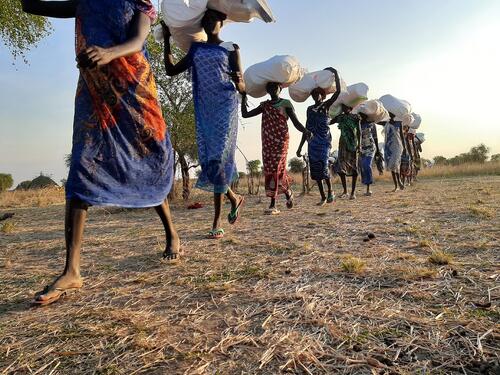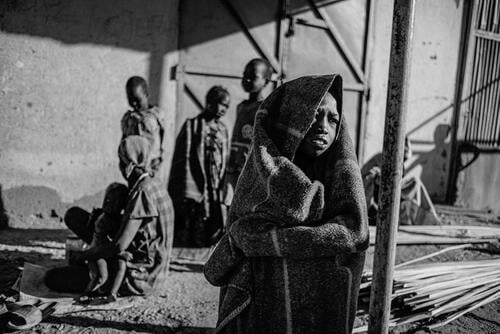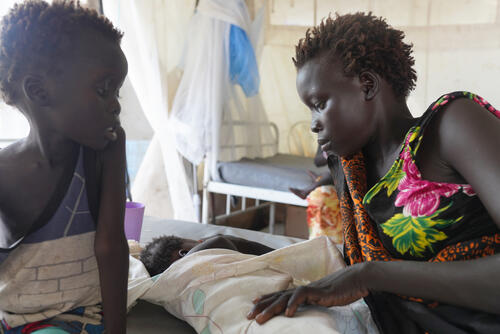The Jonglei and Greater Pibor administrative areas of South Sudan have seen repeated cycles of bitter inter-communal fighting – some lasting for months at a time – throughout 2020. The latest escalation, from June to mid August saw thousands of people displaced. Many continue to live in the bush without healthcare, food, shelter or water and sanitation.
MSF works in and around the towns of Pieri and Pibor, where much of the violence has taken place.
“This conflict has continued since last year. It came up again in February and then in June,” says Sebit Burane, MSF nursing team supervisor in Pibor. “It is not the first time we have had such inter-communal clashes and insistent violence. In the past it was about cattle raiding. It is now more seriously affecting our community. We are seeing the loss of property, the loss of life. We lose our cattle. We lose our children.”
In our clinic in Pieri, our teams treated more than 100 wounded people in just one week from 29 July to early August. In Pibor, where we restarted activities on 11 August, we treated 11 patients for gunshot wounds - the youngest just three years old.
Reaching the MSF clinics from the bush can be an arduous process.
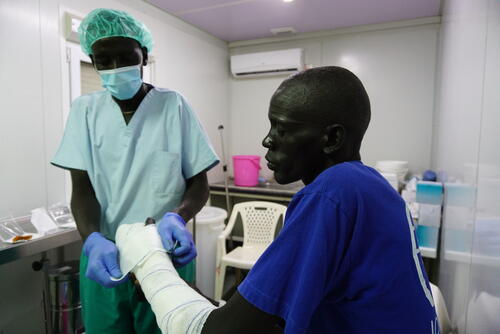
“I lost five members of my family. After I was injured, I was transported on a stretcher carried by different men. It took us 11 days to reach Pieri. There were heavy rains that slowed us down,” says Peter, 43, from Modit, Jonglei State.
There are very few hospitals in South Sudan with the capacity to manage mass influxes of patients requiring critical surgical interventions. As a result, dozens of patients from Pieri were evacuated for urgent surgery to the MSF hospital in the Bentiu Protection of Civilians (PoC). People in Pibor needing complex treatment were referred to the Ministry of Health, and Juba Military Hospital, which is run by the International Committee of the Red Cross.
“The numbers of patients were staggering, putting significant pressure on our medical teams,” says Tila Muhammad, MSF head of mission in South Sudan.
“At that moment, our hospital in Bentiu, where the most serious patients were being referred, was already stretched for bed capacity due to a peak in malaria cases.”
In recent weeks, heavy rains have hampered the ability to make such referrals. Dirt roads turn to mud and become impassable. Similarly, non-tarmac airstrips become unusable, with aircraft unable to land or take off. Many patients who were earlier referred to Bentiu are stuck there. The already complex situation is further hampered by the restrictions posed by COVID-19.
People will continue to face hardship for some time. Many have lost family, their homes, socioeconomic security, dignity and are in need of basic healthcare.Josh Rosenstein, MSF emergency coordinator in Pibor
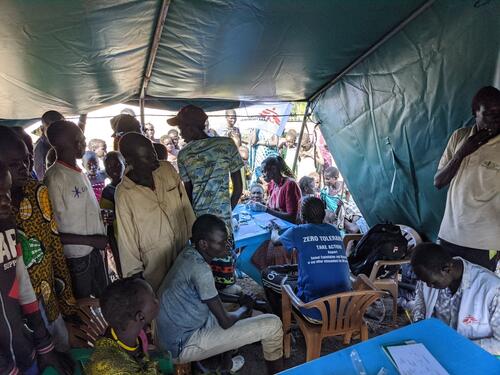
MSF resumes activities in Pibor
On 11 August, nearly two months after the suspension of activities due to immense restrictions directly and indirectly related to the COVID-19 outbreak and rife violence, MSF started an emergency response in Pibor. Emergency outpatient primary healthcare activities were set up in the centre of Pibor town.
“We are relieved to be finally providing primary health care, particularly at this time of year – which is both the rainy season and the ‘lean season’ – when we know there will be high rates of malnutrition, water borne diseases and malaria,” says Josh Rosenstein, emergency coordinator for MSF in Pibor.
“We are disturbed to hear testimonies from our patients and our staff about the impact the violence of the past months has had on people. People will continue to face hardship for some time, many have lost family, their homes, socioeconomic security, dignity and are in need of basic healthcare.”
Through a mobile clinic, operating outside of the Pibor town centre, and the emergency health facility, MSF has so far conducted more than 1,500 consultations, distributed mosquito nets, and provided antenatal care to nearly 300 pregnant women.
“We have been living a miserable life,” says 19-year-old Marta from Pibor. “This all started in February, and we would have never expected this situation to last for long. I ran into the bush with my three- month-old daughter. She was sick and died in July. Today is the first time that I have had access to a healthcare facility since February.”
A timeline of violence
Over the course of 2020, the Jonglei-Pibor region has experienced extraordinarily high levels of violence.
February
The MSF team in Pibor sets up an emergency clinic in response to large numbers of displaced and wounded arriving.
March
MSF’s clinic in Pieri receives 68 wounded patients in just 12 hours. In that same wave, we treat 15 people in Lankien and 45 wounded people in Pibor.
May
Fighting reaches Pieri. Among those killed in an MSF staff member. Local authorities estimate that 200 people died in total, around 300 were wounded. MSF staff had to evacuate and operations were suspended for two days.
June
MSF suspends activities in Pibor town following localised clashes, our ability to re-start is hampered by ongoing violence and immense restrictions imposed by COVID-19.
July
Fighting continues, with MSF teams in Pieri receiving more than 100 wounded people in just one week from 29 July to early August.
August
MSF re-launches an emergency response in Pibor town, treating 11 gun-shot wounded patients in the first week from August 11.



